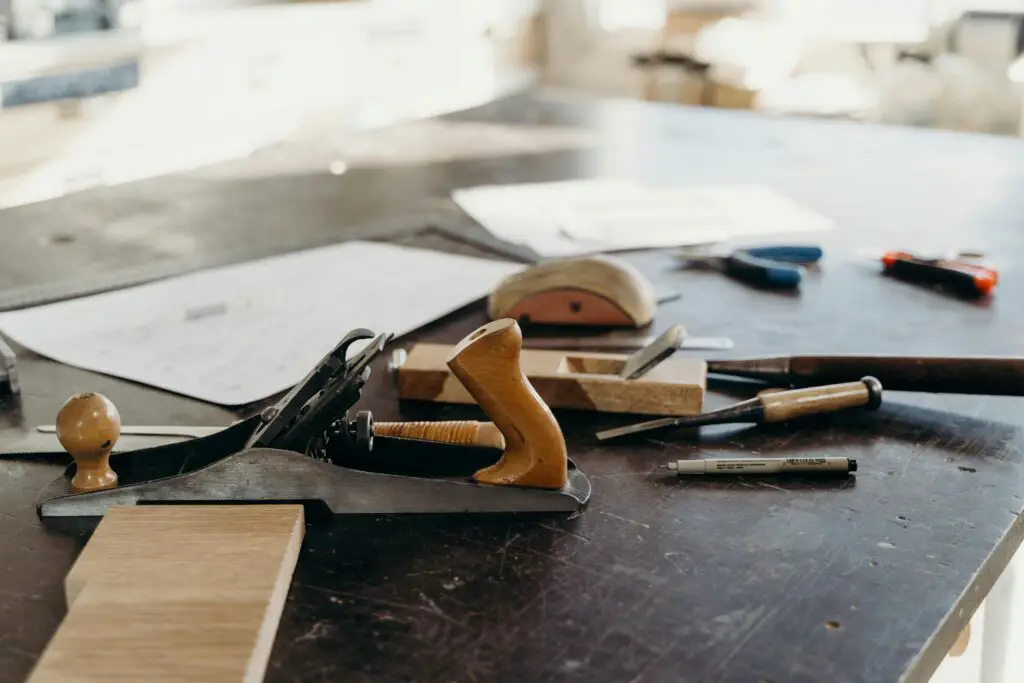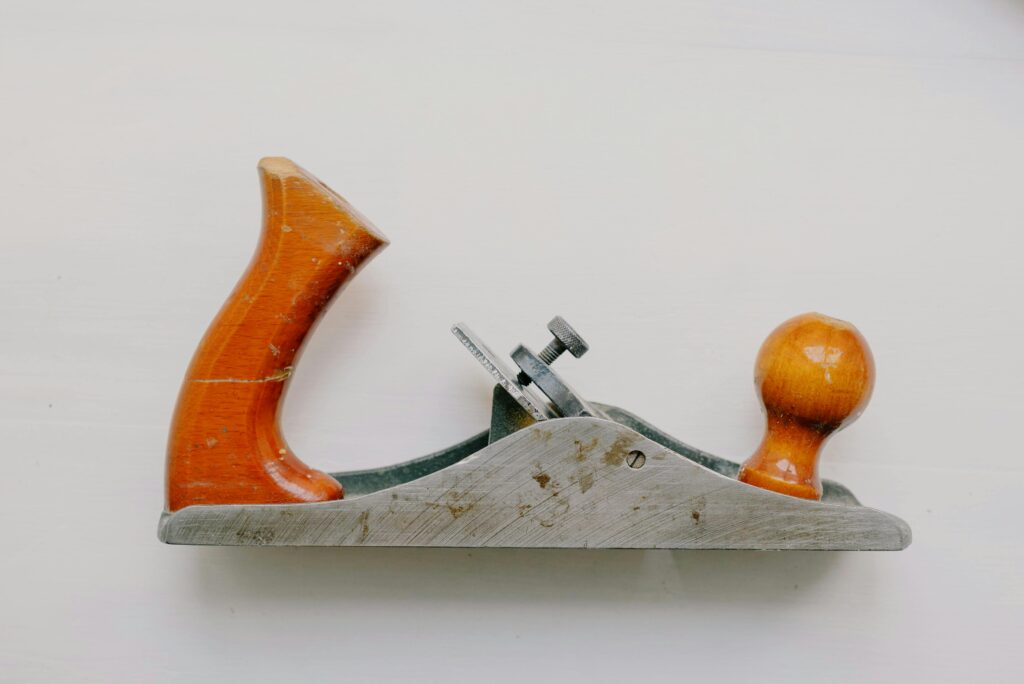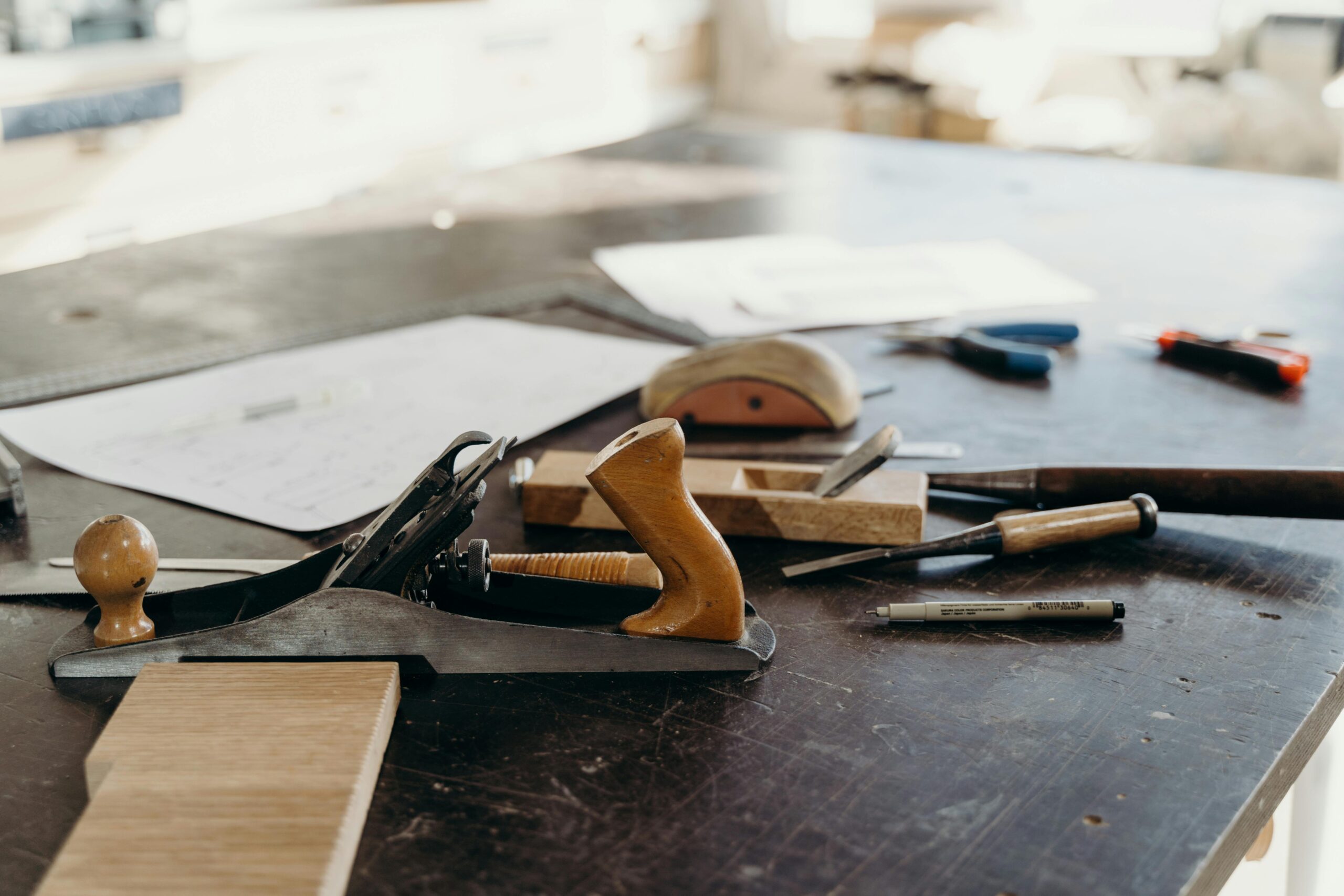Jointer Buying Guide 2025: How to Choose the Right One?
Are you tired of uneven edges ruining your woodworking projects?
A jointer could be the game-changing tool you’ve been missing. This versatile machine transforms rough lumber into perfectly straight, smooth boards. But with so many options available, choosing the right jointer can feel overwhelming. That’s where our ultimate buying guide comes in.
We’ve done the hard work for you, researching and testing various models to bring you expert insights. From benchtop to industrial-grade jointers, we’ll help you find the perfect fit for your workshop and budget.
Dig in and discover your ideal match!

What Is A Jointer?
A jointer is a crucial woodworking tool that creates flat surfaces and square edges on boards. It ensures materials are even and ready for further work. This versatile machine transforms rough lumber into smooth, straight pieces for various projects.
There are several types of jointers available, each with unique features. Benchtop jointers are compact and portable, ideal for smaller workshops and hobbyists. Floor jointers are larger models for professional workshops, handling bigger stock with more power. Spiral cutterhead jointers offer smoother cuts and reduced noise levels.
Using a jointer offers numerous benefits for woodworking projects. It creates flat and straight surfaces for better assembly and finishing. A jointer improves cut accuracy, leading to tighter joints and better fit. It also reduces time spent on hand planing and sanding, enhancing overall project quality.
How To Choose The Right Jointer?
Choosing the right jointer can transform your woodworking projects. Let’s explore the key factors to consider when making this important decision.
Size matters when selecting a jointer for your workshop. Consider your available space and the types of projects you typically undertake. Motor power is crucial for efficient jointing. Look for models with at least 1-1/2 HP to handle hardwoods and thick stock effectively.
Table length affects the size of boards you can joint. Opt for a jointer with at least 8 inches of working space. The fence design impacts the accuracy of your cuts. Choose a model with easy adjustments and sturdy support for precise results.
Cutter head design influences the quality of your finished surface. Consider helical cutter heads for smoother cuts and reduced noise. Read reviews from other woodworkers to gain insights into real-world performance. Their experiences can help you make an informed decision.
Compare different models based on these factors to find the best jointer for your needs. Remember to balance features with your budget.
Discover which jointer size is right for you: 6-inch or 8-inch?
Types Of Jointers
Jointers come in two main types: benchtop jointers and stationary jointers. Each type has its own advantages and is suited for different woodworking needs.
Benchtop Jointers:
- Compact and portable, ideal for small workshops or hobbyists
- Typically have a 6-inch cutting width
- Less powerful motors, usually around 1-1/2 HP
- Shorter tables, offering less support for long boards
- More affordable option for beginners or occasional users
- Easy to store when not in use
Stationary Jointers:
- Larger and more robust, designed for professional or heavy-duty use
- Available in various cutting widths, from 6 inches up to 16 inches
- More powerful motors, often 2 HP or higher
- Longer tables for better support of large workpieces
- Offer greater precision and stability for consistent results
- Usually feature cast iron construction for reduced vibration

Features To Look For In A Jointer
Once you have decided on the type of jointer that best suits your needs, it is time to look into the features of each model to make sure you are getting the best one for you.
- Cutting Width
Choose a jointer with a cutting width that matches your typical project needs. Wider cutting widths (8-12 inches) allow you to joint larger boards.
- Powerful Motor
Look for a motor with at least 1-2 HP for hobbyists, or 2-3 HP for professionals. More power enables smoother cuts through hardwoods.
- Long Bed Length
Longer beds (60-80 inches) provide better support and stability for jointing longer boards. This improves accuracy.
- Adjustable Fence
An easily adjustable fence that locks securely in place allows for precise edge jointing and beveled cuts.
- Flat, Co-Planar Tables
The infeed and outfeed tables should be perfectly flat and aligned for optimal results.
- Sturdy Construction
Cast iron tables and a heavy base reduce vibration and improve stability during use.
- Sharp, High-Quality Blades
Look for durable carbide or high-speed steel blades that maintain sharpness. Spiral cutter heads offer smoother cuts.
- Dust Collection Port
An efficient dust collection system keeps your work area clean and improves visibility.
- Safety Features
Look for a cutterhead guard, power switch safety key, and other safety mechanisms.
- Ease of Adjustment
User-friendly controls for adjusting cutting depth, fence angle, and blade alignment improve efficiency.
Advantages And Disadvantages Of Using A Jointer
Using a jointer has its advantages and drawbacks.
Advantages
- Creates perfectly flat and square surfaces on boards, essential for precise woodworking.
- Allows you to mill rough lumber, saving money compared to buying pre-surfaced wood.
- Improves the quality of joints and glue-ups by ensuring edges are straight and square.
- Corrects warped, cupped, or twisted boards that would otherwise be difficult to work with.
- Increases efficiency by quickly flattening and squaring stock compared to manual methods.
Disadvantages
- Jointers can be expensive, especially larger professional-grade models.
- They take up significant space in a workshop, which may be limited for hobbyists.
- Proper setup and maintenance are required for accurate results, which can be time-consuming.
- There’s a learning curve to use a jointer safely and effectively.
- Jointers are limited in the width of boards they can handle, based on the cutterhead size.
Essential Accessories For Jointers
When it comes to woodworking jointers, there are a few essential accessories that you’ll need in order to get the most out of your new tool.
These accessories include:
- Push Blocks
- Jointer Jig
- Chisel Set
- Dust Collector
Push blocks help keep your hands away from the cutting blades while you’re working, providing greater safety and protection against injury.
A jointer jig is a handy tool for creating perfectly straight edges and is an indispensable accessory for any woodworker’s shop.
A good chisel set is also necessary for any joiner project, as it allows you to trim and shape the wood with precision and accuracy.
Lastly, a dust collector helps you keep your workspace clean while keeping dust particles away from your lungs, making sure that you stay safe and healthy while working with jointers.
Popular Jointer Brands
When choosing a jointer, selecting a reputable brand ensures quality and reliability. Several manufacturers have established themselves as leaders in the woodworking industry.
Powermatic
Known for their high-end, professional-grade jointers, Powermatic offers exceptional build quality and precision. They feature innovative designs like helical cutterheads and robust cast iron construction. Their PJ-882HH 8-inch jointer offers an 84-inch bed length and a 5-year warranty, demonstrating confidence in quality.
JET
JET offers 6-inch and 8-inch jointers with long cast iron beds and front-mounted table adjustments for easy height changes. Their models include options for quick-set straight knives or helical cutterheads, catering to different user preferences. They offer excellent value for money with features typically found in more expensive models.
DeWalt
DeWalt jointers are praised for their durability and ease of use in various workshop settings. They focus on producing compact, benchtop models that deliver professional-quality results in a smaller package.
DeWalt offers a plate joiner kit (DW682K) with a powerful 6.5 amp, 10,000 rpm motor for working in hardwoods. It features a dual rack and pinion fence for parallel blade alignment and an adjustable fence that tilts 0-90°.
Grizzly
Grizzly offers jointers ranging from 6-inch benchtop models to 12-inch industrial machines with helical cutterheads. They are known for providing good value and incorporating features typically found in pricier models. Their G0945 6-inch benchtop jointer features a 10-amp motor, 10,000 RPM cutterhead speed, and cast iron construction for stability and precision.
Cost Factors For Jointers
When it comes to buying a jointer, you need to consider more than just the price tag. There are a number of cost factors to keep in mind.
- The first is the type of material that you’ll be using it for; some jointers are better for soft woods, while others are better for harder woods.
- You should also think about the size and power of the machine – bigger models tend to be more expensive but can be more efficient and powerful.
- Finally, there’s the cost of replacement parts and maintenance. It pays to shop around and do your research before making a final decision – doing so can save you money in the long run.
Maintenance Tips For Jointers
Proper maintenance is crucial for keeping your jointer in top condition and ensuring its longevity. Regular care not only improves performance but also extends the life of your tool. Let’s explore some essential maintenance tips to keep your jointer running smoothly.
- Clean the jointer regularly, removing dust and debris with a soft brush or compressed air.
- Inspect the cutterhead and blades for signs of wear or damage before each use.
- Sharpen or replace dull blades promptly to maintain cutting quality and reduce strain on the motor.
- Lubricate moving parts with a light machine oil, following the manufacturer’s recommendations.
- Check and adjust the fence and tables periodically to ensure they remain parallel and co-planar.
- Tighten any loose bolts or screws to prevent vibration and maintain accuracy.
- Protect the cast iron surfaces from rust by applying a thin coat of paste wax.
- Keep the drive belt tensioned properly to ensure efficient power transfer from the motor.
- Store your jointer in a dry place and cover it when not in use to prevent dust accumulation.
- Refer to your jointer’s manual for specific maintenance instructions and recommended service intervals.
Conclusion
To wrap up, choosing the perfect jointer doesn’t have to be a daunting task. Armed with this comprehensive guide, you’re now equipped to make an informed decision.
Remember to consider the type of jointer that best suits your workspace and project needs. Whether you opt for a benchtop model or a stationary powerhouse, ensure it has the features that will enhance your woodworking experience.
Popular brands like Powermatic, JET, DeWalt, and Grizzly offer reliable options across various price points. Each brand brings unique strengths to the table, catering to different woodworking styles and preferences.
Explore the key differences between Grizzly and Jet jointers here!


